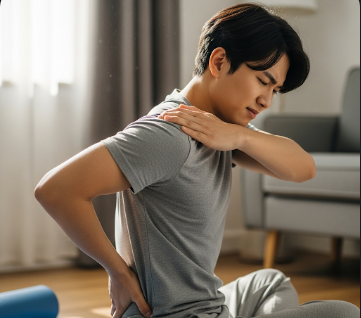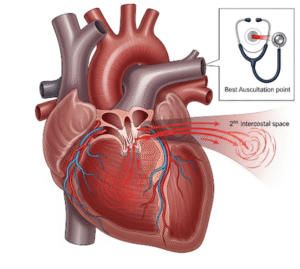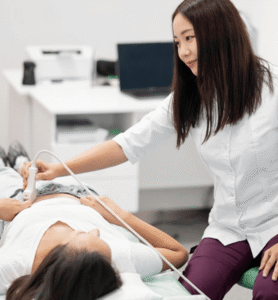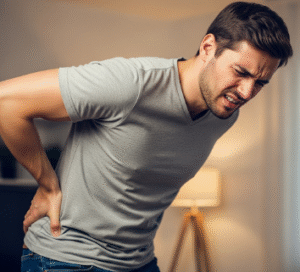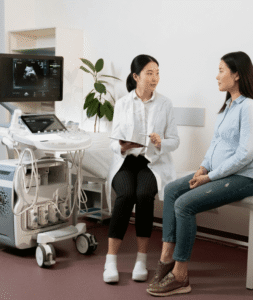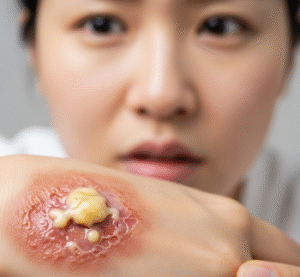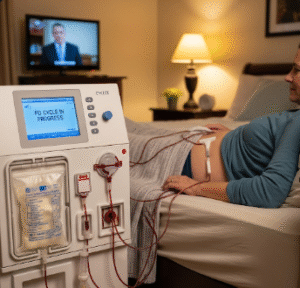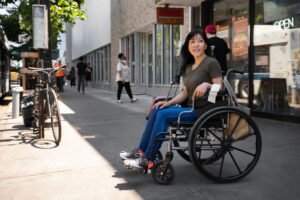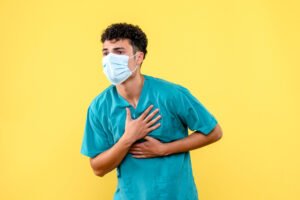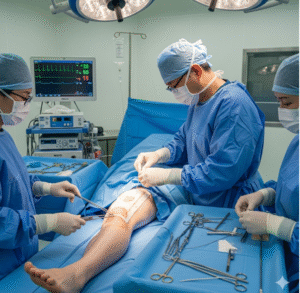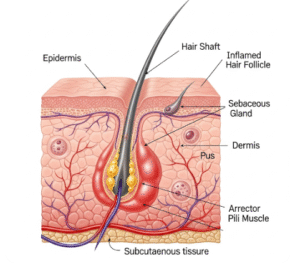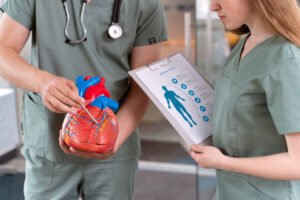Overview
Muscle stiffness is the sensation of tightness, rigidity, or reduced flexibility in one or more muscles, often causing discomfort or difficulty in movement. Unlike muscle cramps, which are sudden and painful, stiffness usually develops gradually and can affect everyday activities, exercise, or posture. Muscle stiffness may occur after prolonged inactivity, overuse, injury, or as part of medical conditions such as arthritis, fibromyalgia, or neurological disorders.
In Korea, physical medicine, rehabilitation, and neurology clinics provide diagnostic assessment and treatment for muscle stiffness, helping patients improve mobility, relieve pain, and prevent complications through a combination of therapy, exercise, and medical management.
Key Facts
➤ Muscle stiffness is a gradual tightening or rigidity of muscles.
➤ Can affect any muscle group, commonly the neck, back, shoulders, and legs.
➤ May result from overuse, injury, prolonged inactivity, or underlying medical conditions.
➤ Often worsens in the morning, after exercise, or with inactivity.
➤ In Korea, treatment may include physical therapy, medications, and lifestyle guidance.
What is Muscle Stiffness?
Muscle stiffness is the increased resistance of muscles to passive movement, often accompanied by:
➔ Tight or hard sensation in affected muscles.
➔ Reduced range of motion or difficulty in stretching.
➔ Mild to moderate discomfort, sometimes progressing to pain.
➔ Muscle tension that may persist for hours or days, depending on the cause.
It can be temporary (due to exercise or sedentary behavior) or chronic (due to conditions like arthritis, neurological disorders, or fibromyalgia).
Symptoms Related to Muscle Stiffness
Common features include:
➤ Persistent tightness or rigidity in muscles.
➤ Difficulty moving affected joints fully.
➤ Mild pain or discomfort, especially after rest or activity.
➤ Fatigue or muscle weakness associated with prolonged stiffness.
➤ Localized or widespread stiffness depending on underlying cause.
Causes / Possible Causes
Muscle stiffness may arise from various physiological, mechanical, or pathological factors:
Physical and Lifestyle Causes
➤ Overuse or strenuous exercise, leading to delayed onset muscle stiffness.
➤ Prolonged sedentary activity or immobility, causing reduced flexibility.
➤ Poor posture or ergonomics, particularly in office workers or drivers.
Medical Causes
➤ Arthritis – osteoarthritis or rheumatoid arthritis leading to joint and muscle stiffness.
➤ Fibromyalgia – chronic widespread stiffness with fatigue and tenderness.
➤ Neurological disorders – Parkinson’s disease, multiple sclerosis, or stroke can cause rigidity.
➤ Muscle injuries – strains, tears, or inflammation (myositis).
Other Contributing Factors
➤ Dehydration or electrolyte imbalance affecting muscle function.
➤ Certain medications causing muscle rigidity as a side effect.
➤ Aging, as muscles lose elasticity and strength over time.
Risk Factors
➤ Older age with reduced muscle elasticity.
➤ Sedentary lifestyle or inadequate physical activity.
➤ Repetitive movements or occupational strain.
➤ Chronic conditions such as arthritis, fibromyalgia, or neurological disorders.
➤ Poor hydration and nutrition, affecting muscle function.
Complications
Persistent or severe muscle stiffness may result in:
➤ Limited mobility and reduced functional ability.
➤ Increased risk of muscle strain or injury.
➤ Chronic pain or discomfort, affecting sleep and quality of life.
➤ Joint stress due to compensatory movement patterns.
➤ Exacerbation of underlying neurological or musculoskeletal disorders.
When Should I See My Doctor?
Seek medical evaluation if:
➤ Stiffness is persistent, worsening, or widespread.
➤ Accompanied by swelling, redness, or significant pain.
➤ Associated with neurological symptoms such as numbness, weakness, or tremors.
➤ You have known musculoskeletal, autoimmune, or neurological conditions.
➤ Stiffness interferes with daily activities or sleep.
Early assessment ensures accurate diagnosis and appropriate management.
Care and Treatment
Lifestyle and Home Care
➤ Gentle stretching and flexibility exercises.
➤ Regular movement breaks if sitting or standing for long periods.
➤ Heat therapy or warm baths to relax tight muscles.
➤ Adequate hydration and nutrition, especially minerals like magnesium and potassium.
➤ Postural adjustments to reduce muscle strain.
Medical Treatments
➤ Muscle relaxants or analgesics for temporary relief.
➤ Physical therapy focusing on strength, mobility, and posture correction.
➤ Treatment of underlying causes such as arthritis or neurological disorders.
➤ Occupational therapy to improve daily function and ergonomics.
Preventive Measures
➤ Maintain a regular exercise routine including stretching, strengthening, and aerobic activities.
➤ Avoid prolonged static positions and practice proper ergonomics.
➤ Manage stress, which can exacerbate muscle tension.
➤ Monitor and address underlying medical conditions promptly.
Treatment Options in Korea
Korean healthcare facilities provide comprehensive care for muscle stiffness through:
Diagnostic Services
➤ Physical and neurological examination to determine cause and severity.
➤ Blood tests to assess inflammation, electrolytes, and nutritional status.
➤ Imaging (X-ray, MRI) for joint, muscle, or spine evaluation.
Therapies and Rehabilitation
➤ Physical therapy programs tailored to specific muscles and conditions.
➤ Heat therapy, massage, and manual therapy for stiffness relief.
➤ Medication management for pain or underlying disease.
➤ Patient education on exercise, posture, and lifestyle adjustments.
Integrative Approaches
➤ Traditional Korean medicine therapies like acupuncture, cupping, and herbal remedies may complement standard care.
➤ Stress reduction programs to minimize muscle tension and improve mobility.
✅ In summary: Muscle stiffness is a gradual tightening or rigidity of muscles that can affect mobility and quality of life. Causes range from physical strain and inactivity to chronic medical conditions. In Korea, patients can access advanced diagnostic services, physical therapy, medical management, and integrative approaches to relieve stiffness, improve flexibility, and enhance overall musculoskeletal health.

